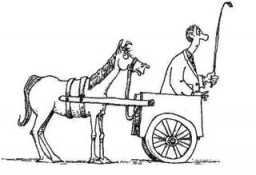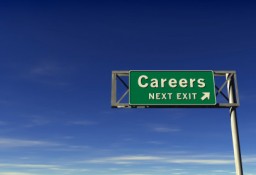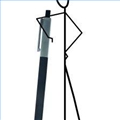Everybody gets knocked down in life, everybody. When you have a goal or objective in life, does the universe allow you to achieve it quickly or easily? Not likely. We live in a universe of adversity.
Our best laid plans, our deepest desires, our clearest objectives will run into opposition. Whatever path we are on, we will run into roadblocks and obstacles. The nature of reality is adversity.
This is a new year. And you can expect to get knocked down this year at some point. For example, I just got off the phone with a client who recently made a career change, one that has changed her life dramatically. “I feel like I can breathe again,” she says. “I’ve got my life back.” She loves her new job and is very happy she switched careers.
However, there is adversity in her situation. She has been parachuted into a key position with this company, and she is facing resentment from co-workers who undermine her enthusiasm with gossip and petty actions. The director of her division regularly criticizes her performance, sometimes with verbal abuse. On the worst days, she wants to quit.
Eric Hoffer, an American philosopher, wrote: “Our achievements speak for themselves. What we have to keep track of are our failures, discouragements, and doubts. We tend to forget the past difficulties, the many false starts, and the painful groping. We see our past achievements as the end result of a clean forward thrust, and our present difficulties as signs of failure and decay.”
Everybody fails, everybody. It is normal. You can expect to fail this year at some point. You will have a strong desire to do or get something and you will not attain it. You will set a goal and not achieve it. In fact, the year starts with resolutions, most of which are never fulfilled. But the odd setback here and there does not a year make.
Life goes on. The setback does not last. Don’t confuse failure with defeat. I love that quote from General George Patton, the WWII hero: “I don’t measure a man’s success by how high he climbs but how high he bounces when he hits bottom.” Failure is a temporary condition; defeat is an attitude.
Most of us play or watch sports because sports reflect the nature of reality—adversity. In each game or contest, every player is trying to score or win. In order to do so, the players and teams must overcome their adversaries. Every player gets knocked down. The key is to get up and focus on what really matters to you.
Life is not a game but it is a structured event, full of circumstances around which we have no control as individuals. Adversity is woven into the very fabric of life. Life owes us nothing. We are entitled to nothing. We are simply given the opportunity to face adversity head on.
We consciously or unconsciously do the things that make us successful or unsuccessful. For example, we are in control of our attitude, of how we respond to circumstances. You will encounter both good and bad circumstances throughout your life; how you respond to them is your choice.
You can choose to be passive, and simply accept whatever life sends your way. Or, you can choose to take actions that will move you closer to what really matters to you. Yes, there will be roadblocks, obstacles, and adversaries that get in the way. By we can choose to meet them head on. That takes courage and strength of mind. To quote General Patton again: “Courage is fear holding on a minute longer.”
Let me close by going back to my client who got a new job but inherited a bad boss and jealous co-workers. As bad as this might appear to be, it is nothing in comparison to the toxic work environment she left last year. I have seen this scenario hundreds of times over the past 20 years. A new year rolls around with a new set of challenges. We live in a universe of adversity; what does not break us makes us stronger.
She is learning to stand up for herself, setting boundaries, and focusing on priorities. Vitality is nurtured by overcoming adversity. We grow personally and professionally by confronting and overcoming challenges. May you bounce back all year long!








 Do you think about changing jobs? The power to do so is right under your nose…well, behind your nose actually! Stored in your brain are memories about events and activities you truly enjoyed in life since childhood. Here are some tips for analyzing your life history for key success factors that reveal work that is personally and financially rewarding.
Do you think about changing jobs? The power to do so is right under your nose…well, behind your nose actually! Stored in your brain are memories about events and activities you truly enjoyed in life since childhood. Here are some tips for analyzing your life history for key success factors that reveal work that is personally and financially rewarding.


